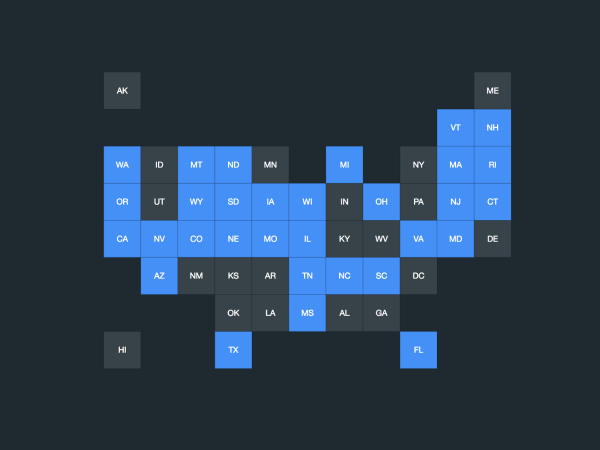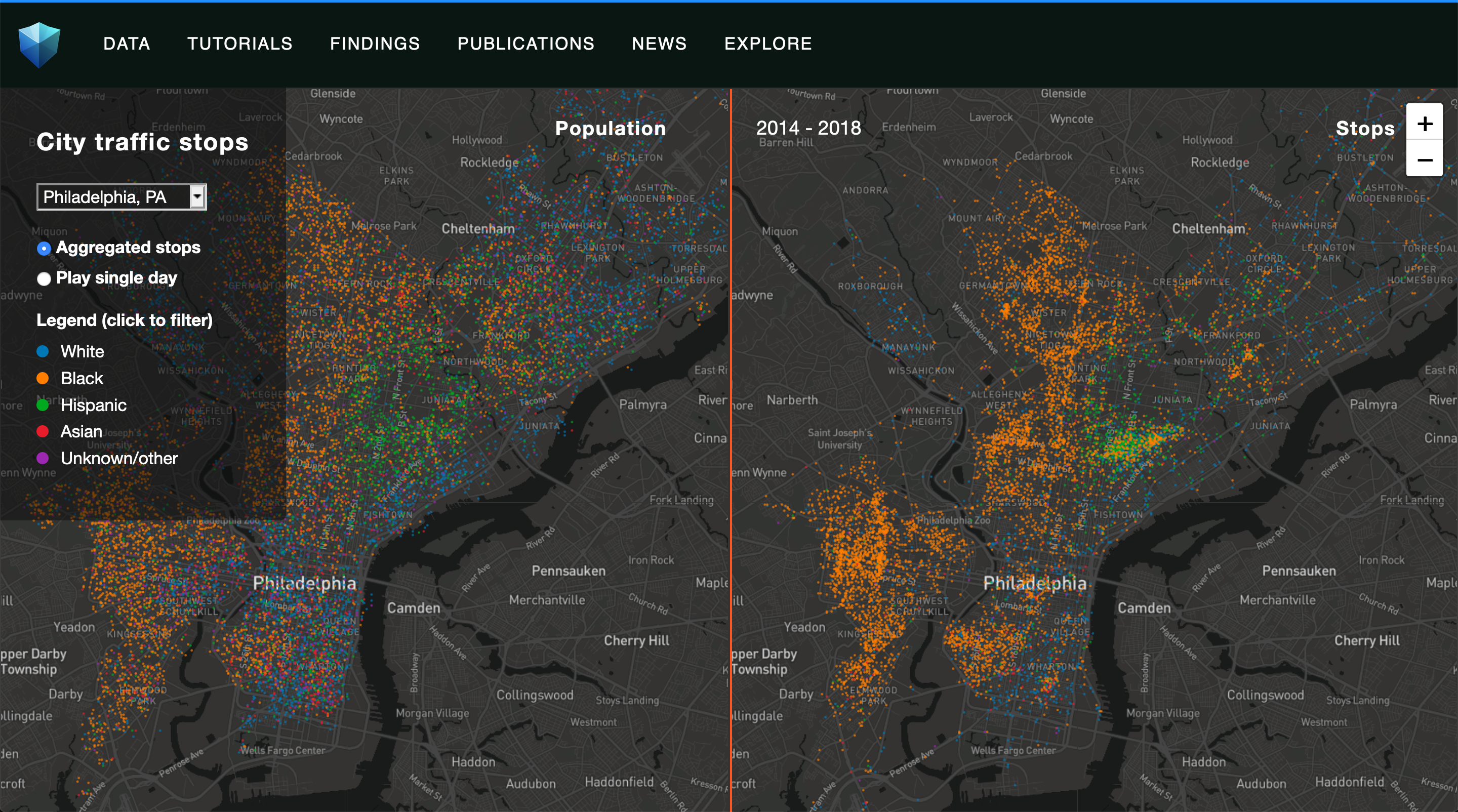

Collecting, analyzing, and releasing 100 million traffic stops from across the country.

More than 20 million Americans are stopped each year for traffic violations, making this one of the most common ways in which the public interacts with the police. But there has never been a comprehensive, national repository detailing these encounters. To change that, we filed hundreds of public records requests in collaboration with Big Local News to compile a dataset of over 200 million traffic stops, conducted in dozens of cities and states across the country — the largest such effort to date.
Our large-scale analysis of nearly 100 million of these traffic stop records was published in Nature Human Behaviour in early 2020. In this study, we found that Black drivers across the country were less likely to be stopped after sunset, when a “veil of darkness” masked their race. In addition, we demonstrated that Black and Hispanic drivers were routinely searched on the basis of less evidence when compared to white drivers. Finally, we observed that marijuana legalization in Colorado and Washington state reduced searches of stopped drivers — but the bar for searching Black and Hispanic drivers in these states after legalization was still lower than for white drivers.
Our open dataset has become an important resource for policymakers, researchers, journalists, and advocates working toward data-driven policing reform. To facilitate use of this unique dataset, we’ve created tutorials and provided code snippets to help people get started. We also conducted a workshop at the annual conference of the National Institute for Computer-Assisted Reporting (NICAR). The workshop empowered journalists to more deeply examine policing practices in their home states and cities, using the tools and data we developed in the lab. Finally, based on our experience compiling these records, we put together a guide to help individuals use public records laws to get the information they’re entitled to.
 A screenshot from an interactive online map built by SCPL that allows the public to explore Open Policing Project data.
A screenshot from an interactive online map built by SCPL that allows the public to explore Open Policing Project data.
As part of this effort, we partnered with journalists at the LA Times to analyze stop practices at the Los Angeles Police Department (LAPD). Their resulting reporting—based in part on statistical techniques developed in our lab—prompted the LAPD to publicly announce they would reduce concerning stop practices.
We continue to use data-driven approaches to analyze policing practices across the country. For example, we worked with the City of Nashville to examine the Metropolitan Nashville Police Department’s (MNPD) traffic stop practices. We found that Black drivers were stopped more often than white drivers, particularly for non-moving violations, such as broken tail lights and expired registration tags. Though these stops were often characterized and justified as an effective means for reducing serious crime, we found no immediate or long-term impact on crime rates from traffic stops. After the release of our study, MNPD reduced traffic stops by roughly 75% and did not see an associated rise in serious crime.
For more information, visit the Stanford Open Policing Project website.